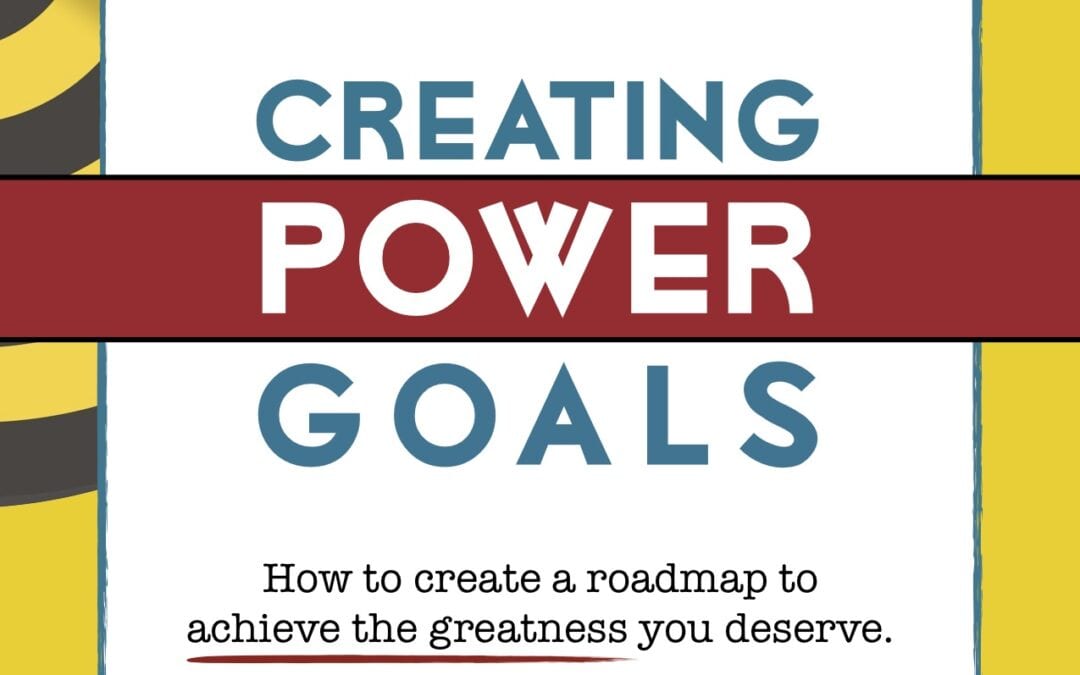
How To Create Powerful Goals
Introduction

The formula is called S.M.A.R.T. and it stands for:
M: Measurable
A: Attainable
R: Realistic
T: Timely
In the next few pages we’ll examine different kinds of goal setting that utilize the S.M.A.R.T. principles and support successful outcomes. How To Create Powerful Goals
Short Term Goals
These kinds of goals are “enabling” and here’s why: How To Create Powerful Goals
> Short term goals move your plan closer to your final, long term goals. They are like preliminary steps along the way to realizing an outcome.
For example, securing a down payment would be an important short term goal for someone with a long term plan of purchasing a home.
> You’ll be inspired to make further progress. Once a short term goal is realized, that success can help to inspire further efforts along the journey to your overall goals.
> For example, if you create a new product that is met with praise, you’ll be inspired to create another product, which will create additional revenue for your business.

> Short term goals help to keep your efforts focused by serving as stepping stones across a stream of competing and distracting activities, occurrences and events.
For example, college course curricula are designed to keep students focused on working toward their major. Each course completion is a short term goal leading up to the ultimate goal of graduation
Long term goals tend to be the major goals of any plan and are, as the name suggests, set out into the future or for the long term, typically 5-10 years in advance. How To Create Powerful Goals
So let’s say your short term goal is to save $3,500 a month for 12 months in order to have enough for a down payment and buy a house in a year’s time. If that short term goals ends up being too aggressive, your overall goal may shift from 12 months away to 18 months away.
But without having short term, monthly goals to guide you, you’d never know if your long term objective is realistic and attainable. How To Create Powerful Goals

Setting Dates
Oversight is when you forget about your goals and necessary tasks associated with them because you’re focused on other issues.
Short term and long term goals, along with their accompanying deadlines, help to keep your overall plan in view so you can stay on task.
Children have a favorite response when asked to do a task: “I’ll do it tomorrow.” As parents, we need to teach children how to do things in a timely manner so these unfinished tasks don’t add up to a mountain of a mess.
As adults with long term goals, we should know better than to put things off until tomorrow because sometimes “tomorrow” never comes.
Life gets in the way with kids activities, work responsibilities, unexpected bills… the list of life’s distractions could go on and on. These distractions cause us to lose sight of our goals and desires. How To Create Powerful Goals
Setting dates and deadlines for reaching your goals will thwart this oversight and will help prevent future regrets.
So as not to be overwhelmed, follow these simple steps:
1. Plan. Prepare a chronological list of all short term goals you need to reach in order to accomplish your long term objective.
2. Schedule. Grab a calendar and set dates for each short term goal.
3. Assess. Pick a day once each month to review your progress and to assess whether your dates are accurate.
4. Now get to work!

The key to this exercise is to move ahead with your plan instead of moving in the other direction. If your goals were neither attainable nor realistic, readjust and move on.
Schedule Time to Work on Goals
The process of setting goals takes time and self-reflection. Be sure you’re as informed as you can be about an issue or opportunity included in your goals. How To Create Powerful Goals
For example, if your goal is to increase your client base, find out things like:
> The competition – Who are your competitors? What size client base do your closest competitors have? How healthy is your industry at this time?
> How long did it take you to develop your current client base? How long do you estimate it would take you to increase your client base by 10%? 15%? 25%?
> Is your level of revenue meeting expectations according to your existing business plan? Are you meeting or exceeding your goals?
> How much would you like to increase your revenue by and how much would you need to increase your client base to achieve that revenue goal?
So often we get carried away with caring for others – our families or our clients – that we forget to allow time to care for ourselves and our life goals.
If you need to delegate some tasks in order to make time in your schedule, then do so. Hire an intern to help with business tasks or outsource some of your household chores so you can find the time to make your goals a reality.
Hire the kid next door to cut your grass or hire a cleaning person to clean for you every week or two. Hire a babysitter once a week to keep the kids occupied or be creative and barter babysitting time with another mother.
Don’t use lack of time as an excuse for not achieving your goals! How To Create Powerful Goals

Equip yourself with enough information and time to develop S.M.A.R.T. goals. How To Create Powerful Goals
Share Your Goals To Maintain Accountability
Determine what you need from a support group – constant reminding, daily emails, weekly check-ins – and share your ideas with those who you think would support you the best. Be clear with what you need and want for support and ask if they would be willing to keep you accountable.
Here are some great ideas for getting help to maintain accountability:
1. Family and friends can be a tremendous support group who share a genuine interest in your success.
2. Joining an association in your field or profession is a great way to meet others who may be willing to help you be accountable to your goals. They may even ask you to do the same for them.
3. Hiring a professional life or business coach is another popular way to get the support necessary to stay on track and on target with your goals. These personal coaches work one-on-one with clients. You may have conversations once a week, once a day, or at any other intervals you determine.
A coach may be an added investment, but for many it’s an investment that can help you achieve tangible results that you never would have attained otherwise.
4. Blogging. Some people even start blogs to keep themselves accountable. For some, it’s easier to announce your goals to the internet world than to your family and friends.
This is not recommended for business planning, because you don’t want your competitors knowing what your plans are, but if journaling online helps keep you on track with personal goals, then do whatever will motivate you to reach those goals.
Watch Your Progress
It’s not enough to just set your goals. It’s also important to refer to your plan, do the work necessary, and assess your progress towards your goals every step of the way.
Keep your business or life plan close at hand on your desk or on a bulletin board and look at it regularly. Too many plans spend their lives hidden in files or piles, if they’re even written down at all!
Refer to your goals regularly to mark your progress. Create a chart for each month that highlights the progress you’ve made on your goals and keep that chart visible at all times.
Goals don’t just happen by themselves; they need your attention and active participation as you follow your plan.

Summary
Checklist for Creating and Realizing Your Goals:
> Remember to give yourself the time necessary to create goals according to the S.M.A.R.T. principles. Make sure you have all the information necessary before creating your goals so it’ll be realistic and attainable
> Incorporate short term goals into your long term goal-setting. Short term goals are like stepping stones along the way to your success. Short term tasks also encourage you to assess your plan along the way and adjust as needed.
> Keeping yourself accountable to your goals is critical. Share your goals with someone you trust, like a peer or coach.
> Actively monitor your progress towards your goals. Don’t keep your goals filed away. Keep them front and center so your actions and tasks will always be aligned with your goals.
Receive, via email, our Action Guides, EBooks, Worksheets, Checklist, and Life Tips we only share with our communtiy
Don't Wait Any Longer. Start Forging Your Own Path Today!
How to Fight Negative Thoughts and Feelings














